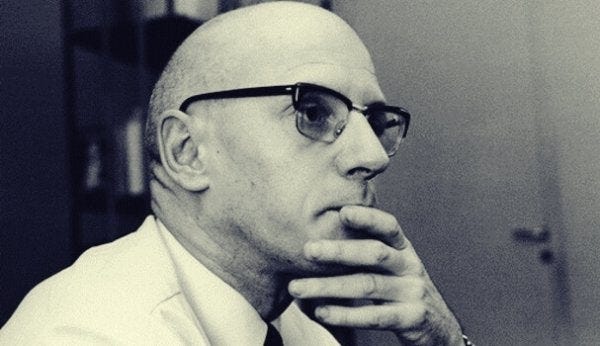In the last article above it concluded with relational observations that an ecological civilization must necessarily accommodate in apprehending itself as a functioning, and functional, interactive part with nature, rather than as a force opposed to nature structured to work against the natural (relational) interactions between earth, water, and sky:
[In conclusion] our review of the existing bodies of literature that take relational approaches to ontology, epistemology, and ethics relevant for sustainability has identified important developments, common themes, and patterns that constitute characteristics of a relational paradigm (and possible shift towards a relational paradigm) in sustainability research. Despite differences between the various perspectives cited, all describe a paradigm that (i) is grounded in a relational ontology, (ii) emphasizes the need for understanding human and non-human nature as mutually constitutive, and (iii) values more-than-human relations.
Our analysis shows that relational ontologies aim to overcome the bifurcation of nature/culture and various other dualisms (e.g. mind/matter, subjectivity/objectivity) shaping the modern worldview. Differentiated (as opposed to undifferentiated) relational ontologies respect the integrity of individuals while understanding how their being is fundamentally constituted by relations of all kinds. In this context, speculative realism, process philosophy, new materialism, and indigenous and religious wisdom traditions are systems of knowledge providing particularly well-developed understandings of relational ontology relevant to [ecological] sustainability.
Our review also shows that relational approaches to epistemology account for the observer’s role in shaping knowledge; acknowledge that agency is distributed across networks; view objects as [relational] assemblages of humans and nonhumans; increasingly focus on transdisciplinary methods to cut across disciplinary boundaries; and use diffractive methods to integrate different ways of knowing.
Lastly, our review shows that relational approaches to ethics include non-anthropocentric perspectives; value non-human nature in non-instrumental terms; use intersectional methods to analyze the inter-relations between social and ecological issues; and contextualize human–nature interactions in light of asymmetrical power relations and dynamics between assemblages or networks of interest.
In today's discussion I would like to speak to the significance of this paradigm shift within the observational body of science. Without a postmodern/metamodern perspective of itself, science would be unable to adequately reflect upon its shortness of ontological perspective. But with it, when coupled with process thought, the body of science in it's interactivity with itself may shift again through the mere reflection of how intersectional relationality lies at its heart of projection across all disciplines, testing, speculation, and theoretical observations.
And as regarding process theologies across the world's religions, and specifically to the multi-racial - or, polyplural - interaction which cultures must adapt and assimilate to in order to heal and move forward with one another, the mere observation of remaining open to possibility and opportunity for greater solidarity with the universe and each other, is the very redemption which the Christian bible hints at through God's relational interaction with man and universe. For without societal comportment with one another and all things non-human, the world lies fractured and without solidarity as a single, functioning redemptive unit allowing difference and sameness to work together in wholistic health and healing, hope and vision. Relationality therefore, is the key, not only within the corridors of science, but to human ecological societies needfully responding to concurrent relational incidents and events.
R.E. Slater
To fellow Christian readers:
What does relational process theism mean when set in an integrative context with all things religious and non-religious? Statedly, a proper theology must include not only itself - but all things of this world and without, cosmically. It would be both nonsense, and nonsensical, to speak of a God so completely exterior to creation as to be wholly divested from - and relationally disconnected to - such a creation. For this type of God, though perhaps real, cannot be real to us, as His creation if separated from it. Only conjecturally hypothetical and unknown to us.
When we speak of God, we must speak of a God who is immanently, intrinsically, and intimately related within, to, and with, his creation who is wholly in relationship to all its created orders. To address God outside his creation holds no meaning for us beyond our philosophical prejudices which are mere conjectures of religious dogma.
God is therefore a relational God who relates to us within the relational universe we have been created from within its divinely naturalistic processes. Outside our creational context we may only speculate about God's "godness" separated from any contextual relationships.
Hence, so much talk about heaven or hell, good or evil, is useless apart from contextuality in how these abstractions play out within a relational world interacting within its parts and structural whole. This is the difference between Christianised Platonic projections and a process-based Christianity.
As example, when Jesus says to love one another. These are contextual projections upon a world of relationships, both human and non-human. Cosmic abstractions are meaningless without real-world relational uplift. Belief without earthy interaction is meaningless. A proper theology is integrally a relational faith comporting with all earthy subjects and not simply one alone with itself, its dogmas, or its otherworldly projections. - re slater

‘Epistemes’ refer to the broader, yet perhaps more important, unconscious biases which affect everyone, including scientists in a given age which, although they do not consider them due to the degree with which they are ingrained in society, fundamentally impact their work.An example of this might be a scientist’s decision to get dressed before going to work, a decision so automatic that they would not even entertain the possibility not to, but one which nonetheless impacts the nature of their research. Thus, it can be seen that science today is not exceptional to science in the past; just as we now see gaping flaws in the way in which science was conducted in every past society, so too is modern science subject to the arbitrary contingencies of its time.
